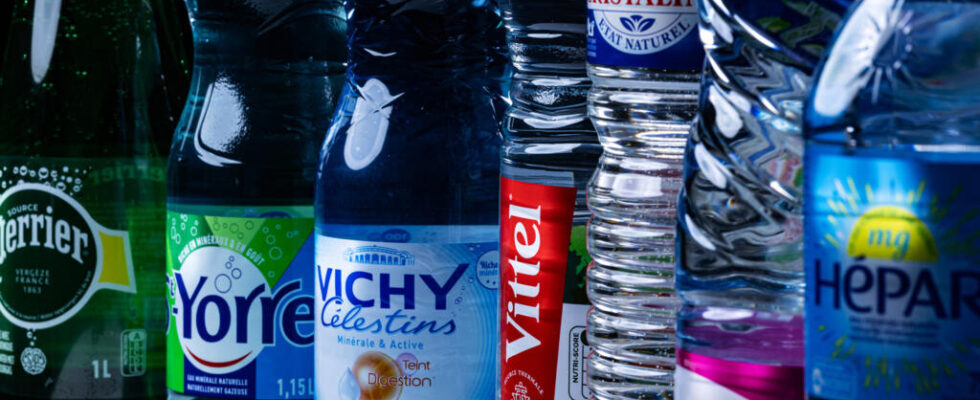The system put in place by France to control bottled water is tainted by ” serious shortcomings ” and does not guarantee the absence of fraudulent products on the shelves, the European Commission estimated in an audit published on Wednesday July 24. Brussels points out in particular insufficient inspections to guarantee healthy water.
3 min
Brussels had initiated this procedure following press reports in January of possible infringements in the natural mineral water sector, and organised a mission of around ten days in March. According to its conclusions, there is indeed a system in France for monitoring natural mineral waters and spring waters with adequate procedures and laboratory testing capacities. But ” Overall, the official control system does not effectively verify that natural mineral waters placed on the market meet the legal requirements in force “, the audit estimates.
The system ” is not designed to detect or mitigate fraud in the natural mineral water and spring water sector and is also not properly implemented, which makes it possible for non-compliant and potentially fraudulent products to appear on the market “, it is added.
The audit deplores in particular inspections that are insufficiently targeted at high-risk sites and not frequent enough, as well as a ” inadequate collaboration within and between relevant authorities “. He also highlights ” the lack of immediate follow-up measures ” allowing to ” ensure that operators remedy non-conformities such as the use of prohibited treatments » or « avoid the marketing of natural mineral waters that are not qualified as such “.
Nestlé Waters targeted for illegal drilling
The scandal is not only health-related, it is also environmental. Because the latest revelations from the independent website Mediapart accuse the company Nestlé Waters of illegally exploiting drilling.
Over the past 20 years, Nestlé Waters is said to have pumped more than 19 billion litres of water without permission, according to Mediapart. This represents the equivalent of 7,600 Olympic swimming pools. The case concerns nine boreholes, five of which are used for the Contrex and Vittel brands. This water is drawn from the Vosges mountains in eastern France. For its part, Nestlé Waters defends itself: ” All our drilling is known, identified and authorized “, the company insists. Nestlé Waters also claims that it ” cooperates fully ” in this survey.
A French subsidiary of the Swiss food giant Nestlé, which sources water for the Perrier, Vittel, Hépar and Contrex brands in France, admitted at the end of January to having used prohibited disinfection treatments (UV lamp, activated carbon) on mineral waters to maintain their ” Food Safety “.
Read alsoIn France, Nestlé admits to having carried out illegal treatments on its bottled water
Ongoing investigations
A preliminary investigation for deception has been opened by the Epinal public prosecutor’s office against Nestlé Waters. The courts suspect Nestlé Waters of having used illegal treatments to purify watersthen marketed under the label “ natural mineral water “The prosecutor of Epinal, in the Vosges, indicates that the two investigations are still ongoing.
The Alma group, which produces around thirty brands of bottled water in France including Cristaline, Saint-Yorre and Vichy Célestins, is also the subject of legal proceedings for similar reasons.
Read alsoFrance: Nestlé ordered to suspend operation of Perrier water well after contamination
